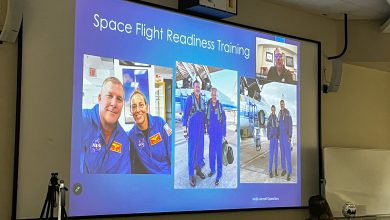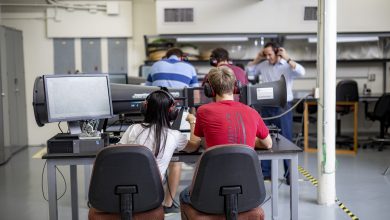Sept. 25 Astronomy Lecture Explores Heliosheath: The Voyager Mission into Interstellar Space
MELBOURNE, FLA.—Florida Institute of Technology’s Astronomy and Astrophysics Public Lecture Series will present “Heliosheath: The final frontier of the
solar system” on Sept. 25 at 8 p.m. The free lecture, in the F.W. Olin Engineering Complex auditorium, Room EC118, will be presented by Ming Zhang, Ph.D.,
Florida Tech professor in the department of Physics and Space Sciences.
Zhang will discuss generally the mission, findings and future of Voyager I and II, launched from Cape Canaveral, Florida, in 1977. The spacecraft’s rate of
travel through the universe, and the scientific theories relative to the launch of the twin crafts will also be explored. The Voyagers were initially
launched to explore the outer solar system, including the giant planets of Jupiter, Saturn, Uranus and Neptune, their 48 moons and systems of rings and
magnetospheres. After making many discoveries in the outer solar system, including a possible ocean of liquid water on one of Jupiter’s moons, they are now
undertaking a mission outward towards the Galactic space interstellar medium filled with gas, dust, magnetic fields, and charged particles.
Before 2005, the twin Voyagers viewed and recorded intriguing streams of solar winds, which consist of ionized supersonic gas and magnetic fields released
from the solar corona. “It has long been expected the solar wind will eventually feel the resisting pressure of the interstellar medium, and as a result,
the solar wind slows down abruptly as a shock transition, which is called the termination shock,” said Zhang.
The F.W. Olin Engineering Center is located on University Boulevard. For more information, call (321) 674-7207, or visit www.fit.edu/aapls online.




